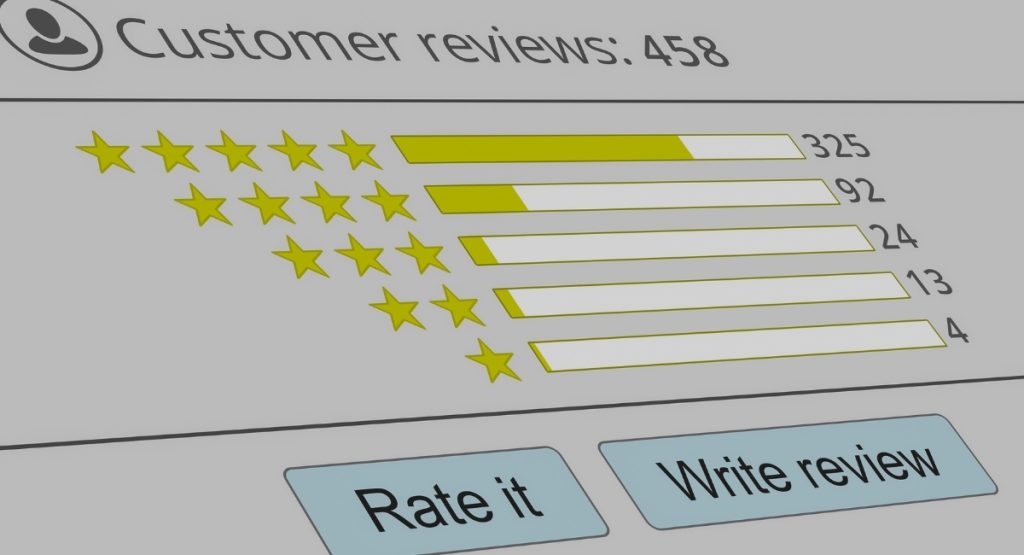
How online reviews affect your business reputation
A few years ago, a business could survive on print advertising, traditional marketing, or a few good relationships. Today, the reality is very different: a single post, a phrase, or a review on Google or TripAdvisor can significantly influence a potential customer’s decision. Customer reviews are no longer just “comments”. They are publicly available records of real experiences that directly shape a business’s reputation, credibility, and ultimately, revenue.
Whether you run a hotel, restaurant, clinic, or online store, managing reviews has become a strategic tool. And the question is no longer whether you’ll receive reviews; but how you will handle them to your advantage.
What are reviews, and how can you get them
Reviews are evaluations customers leave on online platforms after engaging with your product or service. They typically include written feedback and a rating (stars, numbers, thumbs up/down, etc.) and are publicly visible on platforms like:
- Google (via Google Business Profile)
- TripAdvisor
- Booking.com
- Trustpilot
- Skroutz, efood, Wolt
Getting reviews is neither random nor complicated.
It requires a strategy based on encouragement. We’re not talking about fake reviews; not only is that unethical, but platforms now monitor this very strictly. Instead, we’re referring to asking satisfied customers -in a simple and respectful way- to share their experience.
When? At the right moment. After a purchase, a great meal, at hotel checkout, or in a follow-up email. When the experience is fresh and positive, the customer is far more likely to leave meaningful feedback. And yes, it’s perfectly acceptable to ask, politely. You can even offer a small non-monetary incentive, like entry into a giveaway or priority for a future booking.
How reviews impact your business
The answer is simple: much more than you think. According to recent studies:
- 87% of consumers read online reviews before choosing a local business
- 79% say they trust online reviews as much as personal recommendations
- A single extra star in your Google rating can increase conversion rates by 25% or more
Reviews influence not only the psychology of potential customers but also your business’s SEO. Search engines -especially Google- “read” your reviews and use them to assess your relevance and credibility. More positive reviews = higher rankings = more visibility = more sales.
In practical terms, a Google Business Profile with 50+ positive reviews attracts significantly more traffic than one with just 5 or 10.

Common mistakes in review management
Despite their increasing importance, many businesses still make critical errors in handling reviews. The most common include:
- Neglect. Failing to monitor or respond to reviews, whether positive or negative. This signals indifference and a lack of commitment to customer feedback.
- Generic responses. Standard replies like “Thank you for your review” undermine the value of customer relationships. Responses should be personalized and show genuine attention to what the reviewer wrote.
- Defensiveness or aggression. A negative review isn’t an attack. Responding with sarcasm, blame, or public confrontation does more damage than the initial complaint.
- Only asking “easy” customers. A balanced review profile comes from multiple genuine voices. Relying solely on friends, family, or carefully selected customers limits your credibility.
How to handle a negative review
Sooner or later, it will happen. There’s no business that hasn’t faced a negative review. The key is how you respond. A well-managed negative review can actually strengthen your reputation more than a positive one.
- Respond calmly. Acknowledge the customer’s perspective, even if you disagree. Show empathy: “We’re sorry your experience didn’t meet expectations…”.
- Recognize the issue. If a mistake occurred, own it. A sincere apology goes a long way; as long as it’s authentic.
- Offer a solution. Propose a resolution or invite offline communication: “We’d like to make this right; feel free to reach out to us directly at…”
- Think long-term. Your reply isn’t just for the reviewer. Future customers will see how you handle criticism; and that shapes their trust.

How to get more and better reviews
Here are some targeted actions:
Start by investing in the quality of the experience you offer.
No marketing trick can fix a genuinely negative customer journey. The more consistently you deliver what you promise- or go a step beyond- the more naturally positive reviews will follow.
Second, create a post-purchase communication flow.
A polite email with genuine interest (“Thank you for choosing us. We’d really value your feedback”) makes a real difference.
Third, train your team.
Frontline staff should understand that every interaction has the potential to lead to a review. If they know how to leave a great impression, that will show in your feedback.
Lastly, make reviews part of your company culture.
Treat them as a growth tool, not a burden. Discuss them internally, fix issues, improve processes.
Reviews are not just numbers; They’re opportunities
Customer reviews aren’t just numbers next to your name.
They are stories of people who trusted you. They are shared experiences that either build or undermine your brand. And above all, they are a unique opportunity to connect with your audience and prove, day after day, that you deserve their trust.
When approached strategically, consistently, and authentically, reviews can become your most powerful marketing asset; one that can’t be bought, only earned.
Read here, how reviews can impact your business.











